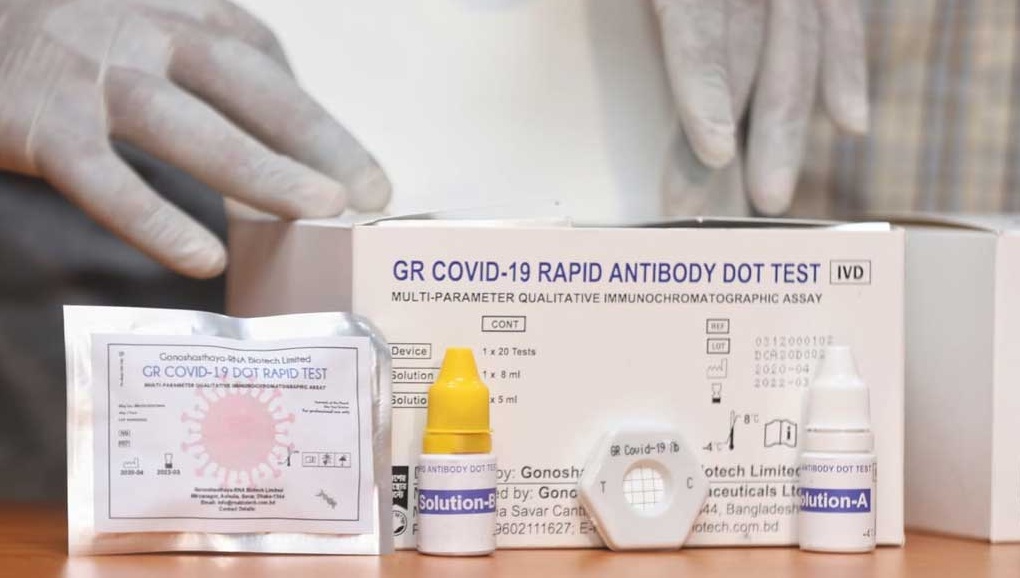
No reason to disallow rapid tests for Covid-19

In South Asia, Nepal and Bhutan have been conducting rapid tests as part of their pandemic response from the beginning
Although there is scope for some inaccuracy in rapid tests for detecting Covid-19 patients, there is no logical reason to leave the option unused in the current situation, clinicians, epidemiologists, public health and infectious disease experts of Bangladesh have said.
Bangabandhu Sheikh Mujib Medical University (BSMMU) public health department Associate Professor Atiqul Haque said it is surprising that the authorities have not started rapid tests in the country already.
“If there are any doubts about the rapid tests, then the authorities can always retest or confirm with RT-PCR tests. The rapid tests are not very expensive and the decision to use them on an emergency basis should have been made long ago,” he added.
“RT-PCR tests are not 100% accurate either. Considering the levels of community transmission, rapid tests should be started immediately,” the associate professor further said.
National Institute of Preventive and Social Medicine (NIPSOM) Professor Be-Nazir Ahmed also said the authorities should take rapid tests into consideration and start them to get a clear picture of the Covid-19 situation.
In South Asia, Nepal and Bhutan have been conducting rapid tests as part of their pandemic response from the beginning. Spain and the US have also been using rapid tests.
Dr Bijon Kumar Sil, lead of the research team that developed Gonoshasthaya Kendra’s rapid test kit, told Dhaka Tribune their first kit was 80% accurate when using saliva samples in small scale trials, but were 100% accurate if the saliva samples were collected properly.
The actual accuracy can be confirmed after BSMMU conducts large scale third-party trials, and the best part of the kit is that it is inexpensive and will help conduct significantly more tests, he added.
2020/06/samsung-june-offer-dt-1170x90-1592483732604.gif
A clinician of a government hospital in Dhaka said doctors and health care professionals at the hospitals are currently very demotivated and afraid of the deadly virus. A rapid test would help give them a sense of security and increase their motivation.
“We would be able to treat patients much more quickly and rapid tests would be particularly useful for emergency cases,” the clinician added.
“Doctors dealing with the patients understand better if the patient has encountered the virus or not. If the result comes back negative but the symptoms say otherwise, there is another option open for retesting,” he argued.
Gonoshasthaya Kendra developed new testing kits by modifying technology developed when SARS broke out.
NIPSOM Professor Be-Nazir Ahmed said increasing the number of tests with rapid test kits would enable specialists to more accurately estimate the dynamic and rate of the virus spread that can also help map zones accurately.
The authorities should allow the tests after setting some guidelines for its use, he added.
Editor & Publisher: S. M. Mesbah Uddin
Published by the Editor from House-45,
Road-3, Section-12, Pallabi, Mirpur
Dhaka-1216, Bangladesh
Call: +01713180024 & 0167 538 3357
News & Commercial Office :
Phone: 096 9612 7234 & 096 1175 5298
e-mail: financialpostbd@gmail.com
HAC & Marketing (Advertisement)
Call: 01616 521 297
e-mail: tdfpad@gmail.com